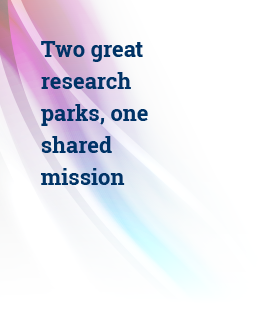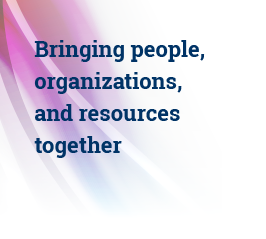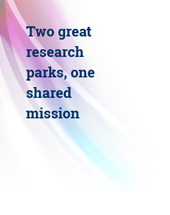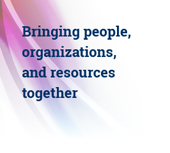Tucson's New Focus on Entrepreneurship, Startups, Retention and Expansion
April 25, 2015 | Arizona Daily Star
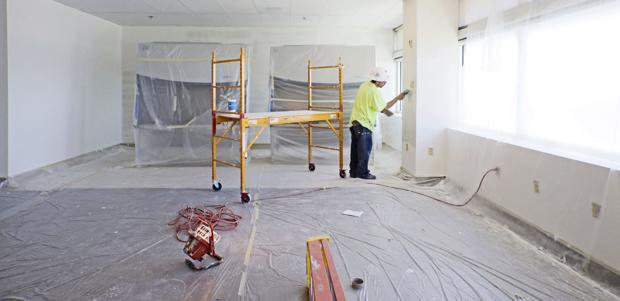
Rick Delacorte with Universal Drywall works in an expanded section of the research and development labs at Accelerate Diagnostics, which relocated from Denver in 2013. The company expects to have more than 100 employees by year-end.
A grow-our-own economic-development strategy is taking root in Tucson.
It’s fueled by a larger wave of university-driven tech startups and patents, and by the growth of business incubators and mentoring centers.
Also contributing is a downtown hipster-inventor spirit that’s resulted in collaborative “co-work” spaces and “maker” movements.
But it’s also a stopgap strategy born of necessity.
The Old Pueblo’s traditional dependance on government workforces and federal contractors has been hurt by ongoing budget cuts.
And attracting major out-of-town corporations to relocate in Arizona’s second-city, or to build job-creating plants here, became even harder during the Great Recession and its aftermath.
Still, the infectiousness of a coalescing entrepreneur community has boosters enthused.
LURE OF ‘STARTUP WEEKEND’
A few years ago, Justin Williams was about to enter into a doctoral program at the University of Arizona. Days before the semester started, he attended a “startup weekend” where aspiring entrepreneurs spend 54 hours competing to see if their product ideas or proposed services are viable. He was hooked, energized by the passion of his peers.
Today, Williams is the CEO of Startup Tucson, working with more than two dozen nascent companies.
Backed by a federal grant, Startup Tucson has a bold mandate, he said — nothing short of transforming the economy, and not just for those working in their garages or business incubators.
“If we are going to transform the economy, it is not going to be limited to helping early-stage entrepreneurs,” he said. “It is looking at what are the barriers to growing that entire ecosystem.”
But this strategy is a big goal for an agency with only a few paid staffers. Williams concedes it could take up to two decades, but he believes Tucson is poised to be a bigger destination for entrepreneurs.
Another challenge for this economic development strategy is that it usually takes years, if it even happens, for local startups to rank among Southern Arizona’s largest 200 employers. High-paying Ventana Medical Systems, now owned by a global pharmaceutical giant, is the poster company for such dreams and possibilities, however.
More often, entrepreneurship is going to result in modest, piecemeal, but potentially promising job growth, idea by idea.
Brian Cornelius, the founder and CEO of Tucson-based RBar Energy, said the community fostered by Startup Tucson has been a tremendous help to him as he has slowly grown his business.
At one time, he cooked his handcrafted energy bars in his own kitchen, handing them out to fellow professional cyclists. They caught on — but he wasn’t an expert on marketing, legal issues or distribution.
Partners have come on board, helping Cornelius gain access to much-needed capital and professional advice. That’s led to an expansion of the areas that his energy bars are being sold, which now include Whole Foods in San Diego and airports along the East Coast.
READY FOR MARKETPLACE
All the pieces are now in place locally to take ideas scratched on the back of napkins into the marketplace, says Bruce Wright, associate vice president of Tech Parks Arizona.
“This community has changed dramatically when it comes to economic development,” Wright said. “We’ve come to the recognition that one really powerful strategy for economic development is to try and grow our own.”
The university is spawning new companies and research out of many departments, not just familiar departments like engineering or the Eller College of Management.
“They are really coming out of all campuses,” said Doug Hockstad, director of the office of technology transfer at the university.
The number of patents coming out of the UA has roughly doubled, with officials confident they will have more than 200 by the end of the fiscal year. Three years ago, the number was between 100 and 125, said David Allen, vice president of Tech Launch Arizona. That agency was formed to help facilitate the UA’s new emphasis on technology commercialization.
The tech park isn’t solely focused on tech transfer from the university. It’s also recruiting technology companies to the park and the university to increase research and development. Cleveland Electric Laboratories, for example, came to the park last year and is working closely with the UA’s optical science and mining engineering departments.
University and tech park officials are optimistic that a proposed Pima County bond initiative would help to expand the park’s facilities along Interstate 10 and Rita Road, as well as a similar campus on South Kino Parkway.
RECESSION’S EFFECTS
The recession led to difficulties recruiting any large business from other cities or states, says Tucson Metro Chamber of Commerce President and CEO Mike Varney, so the chamber focused more of its energies on helping local companies stay and grow.
Multiple studies suggest 70 percent to 90 percent of the new jobs created in the next decade will come from local companies expanding, he says.
Workforce training is still a problem, Varney cautioned. It isn’t just a lack of engineers, either. Many local jobs stay open, he said, because a company can’t find someone with specific vocational training. “Not everybody needs nuclear physicists, but there are a lot of businesses that need people in the building trades and can’t find them,” he said.
Varney cites the chamber’s Business Expansion and Retention Survey, saying that bureaucratic hurdles as well as poor road conditions are also hurting local job growth. Tucson’s recent $100 million road construction bond has helped, he said, but he added that it is only one-eighth of what the city needs to bring up all roads to an average grade of C or better.
COMPANIES INVEST IN CITY
Despite the slow recovery, officials note they have persuaded some non-homegrown companies to invest in Tucson in the last couple of years.
On one floor of the county’s south-side Herbert K. Abrams Public Health Building, Accelerate Diagnostics is well ahead of its expansion plans.
The company started with 13 employees when it relocated from Denver in 2013 and is slated to have more than 100 employees by the end of the year. The average salary, according to county documents, is in excess of $90,000.
Joen Johansen, Accelerate’s head of marketing, said the Tucson business community and local government officials have been valuable resources as the company expands.
While the company expects to outgrow the county building by 2018, Johansen is confident that Accelerate will stay in Tucson.
Recruitment of Accelerate and a HomeGoods distribution center are success stories for Tucson Regional Economic Opportunities Chairman Guy Gunther.
Both are relatively small businesses compared with the companies TREO was recruiting before the recession. But the businesses pay good salaries and have the potential for growth over time.
Massachusetts-based HomeGoods will build a warehouse and distribution center, which would open next year with 410 jobs, in exchange for more than $6 million in tax breaks over 15 years.
“What we also got (with HomeGoods) was 100 management jobs. What we also got with that, everyone in the warehouse has a career path to get to one of those management jobs,” Gunther said.
HomeGoods, Gunther said, shows Tucson is a good location for distribution centers and could grow with the construction of Interstate 11, if it goes through Nogales.
The recession also forced TREO to put more resources into helping local companies expand, Gunther said.
Going forward, he said, TREO must again focus on recruiting companies into the region in order to meet its goal of increasing the overall number of jobs by 2 percent.
Varney’s bottom line: Any new job is important, especially to working families, even if it doesn’t amount to a family’s primary income or pay $100,000 a year, he argues. It could provide the second paycheck that the household needs “to get their nose above the waterline.”







